Advice
Common Themes in Successful Films
Have you ever watched a movie and felt like there was something deeper going on beneath the surface? That’s the power of symbolism at work—a language of images, colors, sounds, and more, subtly woven into the fabric of storytelling. In this educational exploration, we’ll delve into the techniques filmmakers use to harness symbolism, unlocking the hidden messages and deeper meanings that enrich our cinematic experiences.
Visual Metaphors:
Imagine a scene where a character sits alone, peeling an orange—a seemingly innocent moment, yet laden with significance. In “The Godfather,” director Francis Ford Coppola uses this visual metaphor to symbolize impending danger and death. By associating oranges with perilous situations throughout the film, Coppola creates a sense of unease and foreboding, without ever explicitly stating it. This is the power of visual metaphors—they allow filmmakers to convey complex ideas and emotions without saying a word.
Choice of Color:
Colors can evoke powerful emotions and associations, influencing how we perceive characters, settings, and themes. Take “The Matrix,” for example, where the directors, the Wachowskis, use color to distinguish between the artificial reality of the Matrix (green) and the real world of Zion (blue). By associating green with deception and blue with truth, the filmmakers create a visual language that helps audiences navigate the film’s complex narrative and themes.
Music and Sound:
From the haunting melody of “Jaws” to the iconic theme of “Star Wars,” music and sound play a crucial role in shaping our emotional responses to film. In “Jaws,” director Steven Spielberg uses John Williams‘ ominous score to build tension and suspense, signaling the presence of the shark long before it appears on screen. By manipulating sound and music, filmmakers can create mood, atmosphere, and emotion, heightening the impact of key moments and enhancing the overall cinematic experience.
Camera Angles and Movements:
Have you ever noticed how the angle of a shot can change the way we perceive a character or scene? In “Citizen Kane,” director Orson Welles uses low-angle shots to make the titular character appear larger than life, conveying his power and dominance. Conversely, high-angle shots are used to depict vulnerability and weakness, creating a sense of intimacy and empathy with the characters. By carefully choosing camera angles and movements, filmmakers can manipulate our perception of space, time, and reality, guiding us through the narrative and shaping our emotional responses.
Dialogue and Narration:
Dialogue and narration are powerful tools for conveying information, opinions, and perspectives, as well as revealing the inner thoughts and motivations of characters. In “Fight Club,” director David Fincher employs unreliable narration to create ambiguity and uncertainty, reflecting the protagonist’s fractured psyche. By playing with language and narrative structure, filmmakers can subvert audience expectations, challenge conventional storytelling conventions, and invite us to question our perceptions of reality.
Editing and Montage:
Editing is where the magic of filmmaking truly comes to life, as shots are stitched together to create meaning, rhythm, and continuity. In “The Godfather Part II,” director Francis Ford Coppola uses cross-cutting between past and present to contrast and connect the parallel storylines of Michael Corleone’s rise to power and his father’s immigrant origins. By manipulating time, space, and perspective, filmmakers can weave together disparate elements of the narrative, enriching the story with layers of meaning and subtext.
In conclusion, symbolism is a powerful tool that filmmakers use to convey messages and deeper meanings in their films. By employing visual metaphors, colors, music and sound, camera angles and movements, dialogue and narration, and editing and montage, filmmakers can enhance storytelling by adding depth, emotionality, and layers of meaning that resonate with audiences on a profound level. So, the next time you watch a movie, keep an eye out for the subtle symbols and hidden meanings that enrich the cinematic experience, and you’ll unlock a whole new world of understanding and appreciation for the art of filmmaking.
Advice
How to Create Emotion in Film

Emotions are the foundation of the human experience. They shape our decisions, color our memories, and drive our relationships. In cinema, emotions are not just an added layer—they are the very heart of storytelling. If a film leaves its audience unmoved, it is often deemed a failure. Understanding how emotions work, both psychologically and cinematically, reveals the secrets behind films that truly resonate.
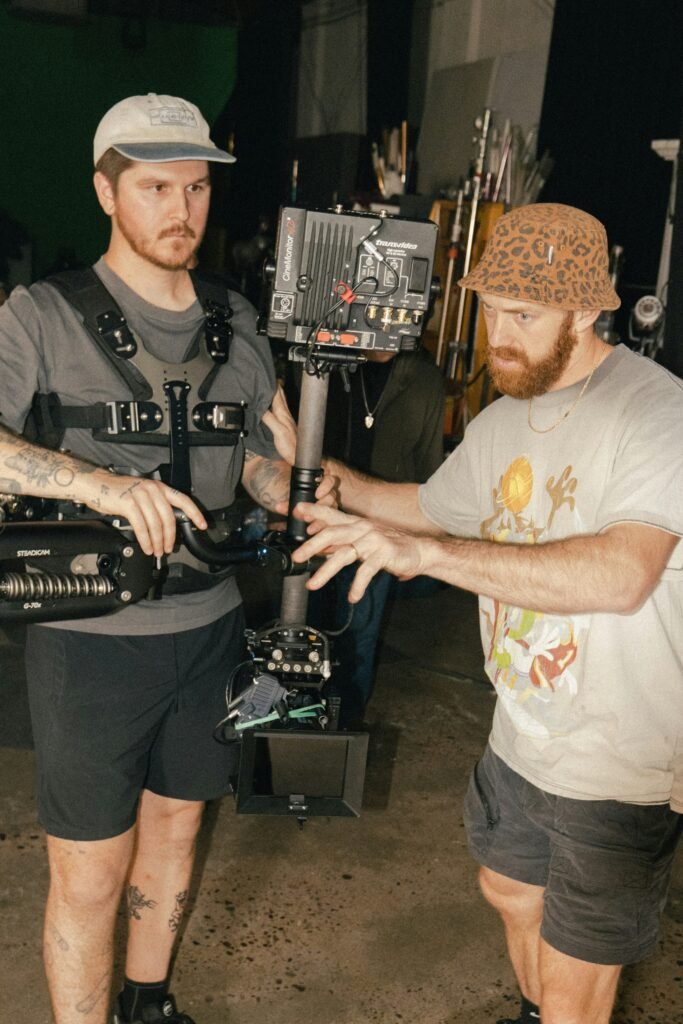
The Psychology of Emotion
Where Do Emotions Come From?
Modern psychology has long sought to answer two central questions about emotion:
- Where do emotions originate?
- How can they be categorized?
For filmmakers, the origin of emotion is especially relevant. Evolutionary psychologists argue that basic emotions are products of natural selection, serving crucial roles in survival by aiding decision-making, motivation, socialization, and memory.
Components of Emotion
Psychologist Klaus Scherer identifies five components of emotion:
- Cognitive Appraisal: The brain’s identification of an emotion.
- Bodily Symptoms: Physical manifestations, like a racing heart.
- Action Tendencies: How we are motivated to respond.
- Expression: Outward signs, such as facial expressions or gestures.
- Feelings: The subjective experience of the emotion.
Theories of Emotional Experience
- James-Lange Theory: Early theorists William James and Carl Lange posited that emotions are the result of physiological reactions. For example, “I’m sweaty, so I must be nervous.”
- Cognitive Appraisal Theory: Richard Lazarus later argued that thought comes first. We appraise a situation, then experience both physiological and emotional reactions. One person might see a rat and feel fear; another might see the same rat and feel joy.

How to Create Emotion in Film
1. Write Emotion into the Script
- Script as the Heart: The emotional impact of a film begins with its script. Audiences must care about the story and its characters; when characters feel, viewers feel.
- Recontextualized Repetition: Repeating lines, objects, or motifs in new contexts gives them deeper meaning (e.g., the shoes in Jojo Rabbit or the song “Remember Me” in Coco).
- Dialogue: Well-crafted dialogue can move through a spectrum of emotions, as seen in the monologue from Steel Magnolias, which shifts from sadness to rage.
Example: “Toy Story 2” Flashback
Jessie’s flashback uses dialogue, repetition, and context to build a powerful emotional arc, culminating in the line: “You never forget kids like Emily or Andy. But they forget you.”
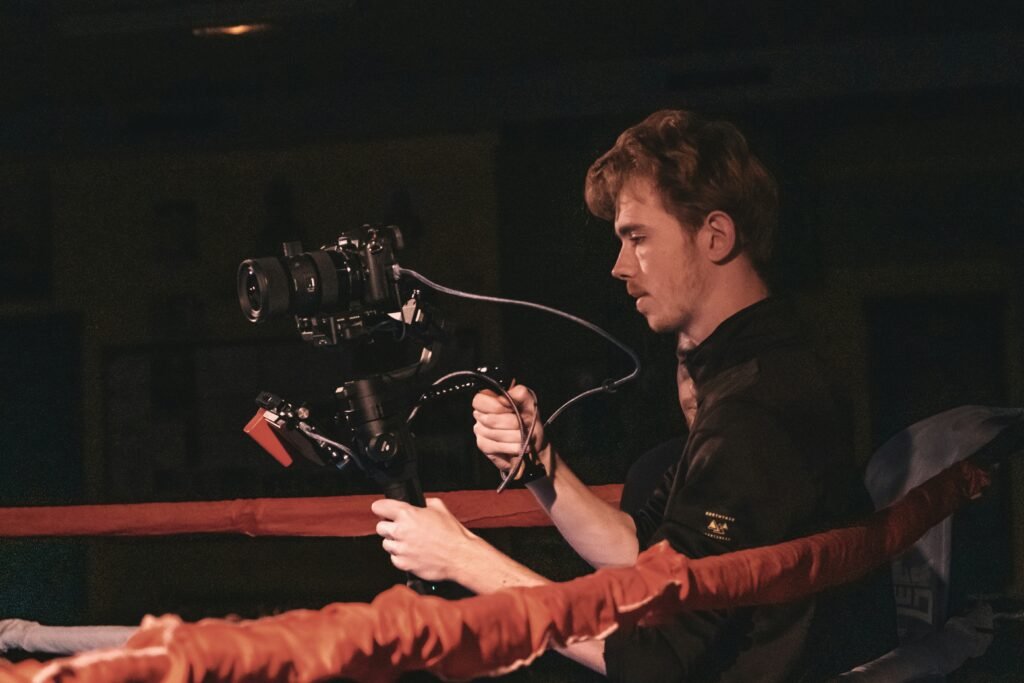
2. Use Visual Storytelling to Evoke Feeling
- Lighting: Sets the mood—low-key lighting creates tension (Alien), while bright light evokes relief (The Lord of the Rings).
- Camera Angles and Movement: High angles can convey guilt (Manchester by the Sea), close-ups foster intimacy (Interstellar), and wide shots can evoke grandeur or loneliness (La La Land).
- Color: Red can induce unease; cool tones suggest melancholy.
- Framing: Focusing on faces or omitting them (as with Emily in Toy Story 2) centers the audience on the emotional experience.
- Camera Movement: Moving toward a character can create empathy; pulling away can evoke isolation.
3. Hone Emotion in Post-Production
- Editing: The rhythm of cuts and transitions can heighten or prolong emotion. Dissolves can evoke memory and nostalgia; hard cuts can underscore abrupt loss.
- Music: Perhaps the most potent emotional tool, music can make us cry, thrill us, or terrify us. The song “When She Loved Me” in Toy Story 2 is a prime example.
- Sound Design: Beyond music, sound effects can amplify tension or anxiety (e.g., the fry cracker in Boogie Nights).

Table: Filmmaking Techniques for Evoking Emotion
| Technique | Example Film/Scene | Emotional Effect |
|---|---|---|
| Recontextualized Repetition | Jojo Rabbit (Rosie’s shoes) | Heightens heartbreak |
| Dialogue | Steel Magnolias (monologue) | Shifts through grief and rage |
| Lighting | Alien (low-key), LOTR (bright) | Fear, relief |
| Camera Angles | Manchester by the Sea (high angle) | Guilt, empathy |
| Color | Toy Story 2 (golden to muted) | Nostalgia, melancholy |
| Editing | Eternal Sunshine (intercutting) | Nostalgia, longing |
| Music | Toy Story 2 (“When She Loved Me”) | Sadness, loss |
| Sound Design | Boogie Nights (crackers) | Anxiety, tension |
Conclusion
No two movies are alike, but the best films share a common goal: to move us. Whether through writing, visuals, editing, or sound, filmmakers draw on the science of emotion to craft experiences that linger long after the credits roll. Great films make us feel—sometimes joy, sometimes sorrow, but always something real.
Advice
10 Types of Shots Every Filmmaker Should Know

Understanding camera shots is fundamental for new filmmakers. Each shot type not only frames your subject but also shapes the story, mood, and emotional impact of your film. Below is a detailed breakdown of the ten essential shots, with practical advice and tips to help you master them from the start.

1. Wide Shot (Long Shot)
- What it is: Shows the subject within their environment, often from a distance.
- Why it matters: Establishes context, location, and scale. It’s often used as an opening or establishing shot.
- Beginner advice:
- Use wide shots to orient your audience at the start of a scene.
- Pay attention to composition—avoid cluttered backgrounds and keep the frame balanced.
- Don’t be afraid to move your camera to find the most visually interesting angle.
2. Full Shot
- What it is: Frames the subject from head to toe, including some background.
- Why it matters: Captures body language and movement, crucial for action or dance scenes.
- Beginner advice:
- Use full shots to show physicality or when characters interact with their environment.
- Make sure the subject isn’t too small in the frame—keep them prominent but not cramped.
3. Medium Shot
- What it is: Frames the subject from the waist up.
- Why it matters: Balances the subject and background, ideal for dialogue and character interaction.
- Beginner advice:
- Use medium shots for conversations and to show relationships between characters.
- Watch for distracting elements in the background and keep the camera steady.
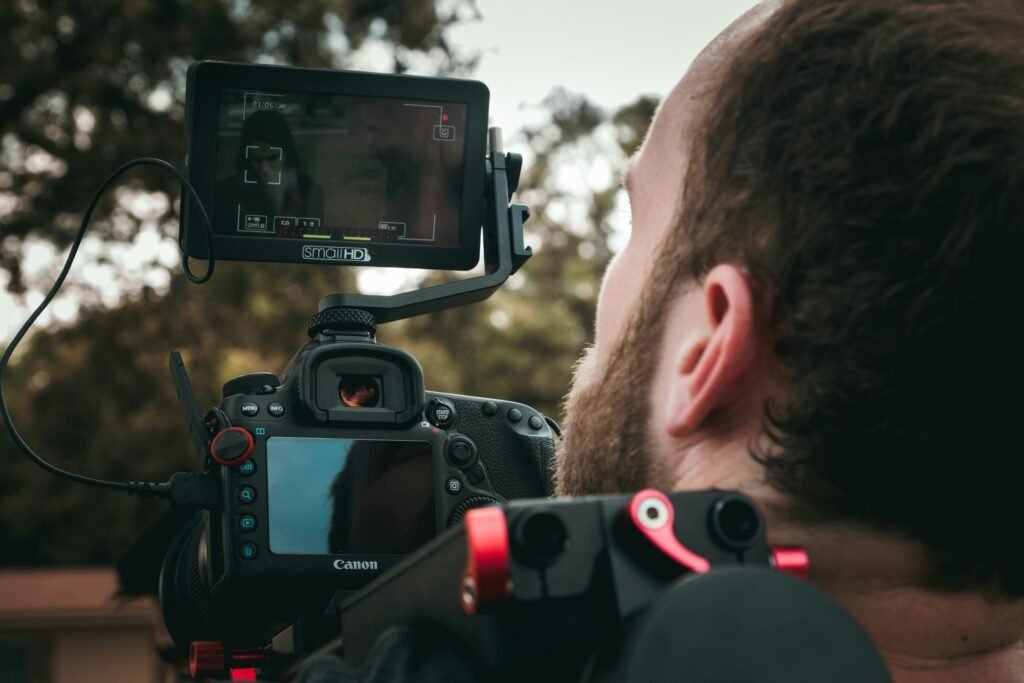
4. Medium Close-Up
- What it is: Frames the subject from the chest or shoulders up.
- Why it matters: Highlights facial expressions while still providing some context.
- Beginner advice:
- Use this shot to capture subtle emotions.
- Ensure the subject’s eyes are in focus and well-lit.
5. Close-Up
- What it is: Fills the frame with the subject’s face or a specific detail.
- Why it matters: Captures emotions, reactions, and important details.
- Beginner advice:
- Use close-ups to emphasize key moments or reactions.
- Avoid overusing close-ups; they’re most powerful when used sparingly.
6. Extreme Close-Up
- What it is: Focuses on a very small detail, such as eyes, lips, or an object.
- Why it matters: Intensifies emotion or draws attention to a critical element.
- Beginner advice:
- Use extreme close-ups to highlight something crucial or to create tension.
- Make sure the detail you’re focusing on is relevant to the story.
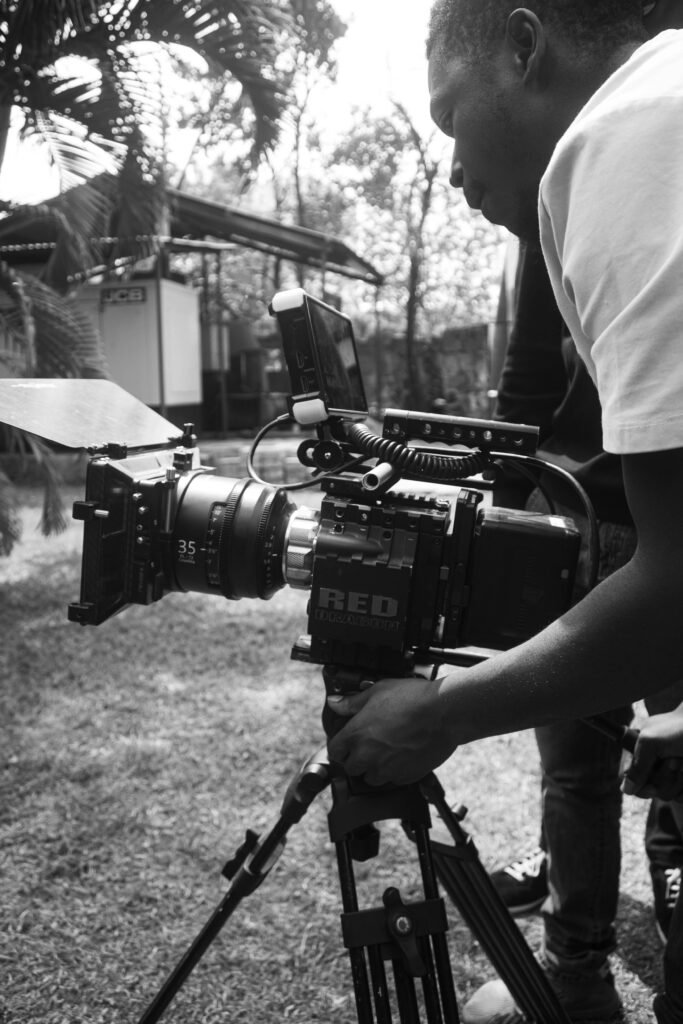
7. Over-the-Shoulder Shot (OTS)
- What it is: Shows the subject from behind another character’s shoulder.
- Why it matters: Connects characters and provides the audience with a sense of perspective.
- Beginner advice:
- Use OTS shots in conversations to establish spatial relationships.
- Maintain consistent eyelines and follow the 180-degree rule to avoid confusing the audience.
8. Point-of-View Shot (POV)
- What it is: Shows the scene from a character’s perspective.
- Why it matters: Immerses the audience in the character’s experience.
- Beginner advice:
- Use POV shots to make viewers feel part of the action.
- Keep the camera movement natural—avoid shaky footage unless it serves the story.
9. High Angle Shot
- What it is: Looks down on the subject from above.
- Why it matters: Makes the subject appear smaller, weaker, or more vulnerable.
- Beginner advice:
- Use high angles to convey vulnerability or power dynamics.
- Don’t overuse—reserve for moments when you want to emphasize a character’s situation.
10. Low Angle Shot
- What it is: Looks up at the subject from below.
- Why it matters: Makes the subject appear larger, more powerful, or imposing.
- Beginner advice:
- Use low angles to show dominance, heroism, or intimidation.
- Be mindful of background elements—avoid clutter or distractions above your subject.
Essential Shot Composition Tips for New Filmmakers
- Plan Your Shots: Create a shot list before filming. This helps you visualize each scene and ensures you capture all necessary angles.
- Use a Tripod or Stabilization: Keep your shots steady, especially as a beginner. Shaky footage can distract from your story.
- Frame Carefully: Pay attention to the background, edges, and what’s in focus. Use the rule of thirds to create balanced, engaging compositions.
- Vary Your Angles: Don’t shoot everything from eye level. Experiment with high, low, and side angles to add visual interest.
- Practice Regularly: Try recreating shots from your favorite films or practice with everyday objects at home. Review your footage and look for ways to improve framing and composition.

- Avoid Common Mistakes:
- Don’t rely solely on auto settings—learn manual controls for exposure, focus, and white balance.
- Don’t neglect sound—bad audio can ruin a good shot.
- Don’t overuse shallow depth-of-field or camera movement without purpose.
- Always get enough coverage—shoot a variety of shot sizes for each scene.
Quick Reference Table
| Shot Type | Description | Typical Use Case | Beginner Tip |
|---|---|---|---|
| Wide/Long Shot | Subject in environment | Establishing location, scale | Keep frame balanced, avoid clutter |
| Full Shot | Head-to-toe framing | Body language, movement | Subject should be prominent |
| Medium Shot | Waist up | Dialogue, character interaction | Watch background, keep steady |
| Medium Close-Up | Chest/shoulders up | Facial expressions, context | Focus on eyes, good lighting |
| Close-Up | Face or detail fills frame | Emotions, reactions | Use sparingly for impact |
| Extreme Close-Up | Isolated detail (eyes, object) | Intense emotion, critical detail | Highlight story-relevant details |
| Over-the-Shoulder | Behind another character’s shoulder | Conversations, perspective | Maintain eyelines, 180-degree rule |
| Point-of-View | From character’s perspective | Immersion, subjective experience | Keep movement natural |
| High Angle | Camera above subject | Vulnerability, power dynamics | Use for emphasis, not overuse |
| Low Angle | Camera below subject | Power, dominance, heroism | Watch for background distractions |

Final Advice for New Filmmakers
- Start Simple: Focus on mastering the basics before experimenting with complex shots or movements.
- Learn by Doing: The best way to improve is to shoot regularly, review your work, and seek feedback.
- Tell a Story: Every shot should serve the story. Don’t use a shot just because it looks cool—make sure it has a purpose.
- Be Patient: Filmmaking is a craft that takes time to develop. Embrace mistakes as learning opportunities and keep practicing.
By understanding and practicing these ten essential shots, and following these tips, you’ll build a strong foundation for visual storytelling and set yourself up for success as a filmmaker.
Advice
How to Find Your Voice as a Filmmaker

Every filmmaker aspires to create projects that are not only memorable but also uniquely their own. Finding your creative voice is a journey that requires self-reflection, bold choices, and an unwavering commitment to your vision. Here’s how to uncover your style, take risks, and craft original work that stands out.
1. Discovering Your Voice: Understanding Your Influences
Your unique voice begins with recognizing what inspires you.
- Step 1: Reflect on the themes, genres, or emotions that consistently draw your interest. Are you inspired by human resilience, surreal worlds, or untold histories?
- Step 2: Study the work of filmmakers you admire. Analyze what resonates with you—their use of color, pacing, or narrative techniques.
Tip: Combine what you love with your personal experiences to create a lens that only you can offer.
Example: Wes Anderson’s whimsical, symmetrical worlds stem from his love of classic storytelling and his unique visual style.

Takeaway: Start with what moves you, then add your personal touch.
2. Taking Creative Risks: Experiment and Evolve
To stand out, you must be willing to challenge conventions and explore new territory.
- Experimentation: Try unusual storytelling structures, such as non-linear timelines or silent sequences.
- Collaboration: Work with people outside your usual circle to gain fresh perspectives.
- Feedback: Screen your projects for trusted peers and be open to constructive criticism.
Example: Jordan Peele blended horror with social commentary in Get Out, creating a genre-defying film that captivated audiences.
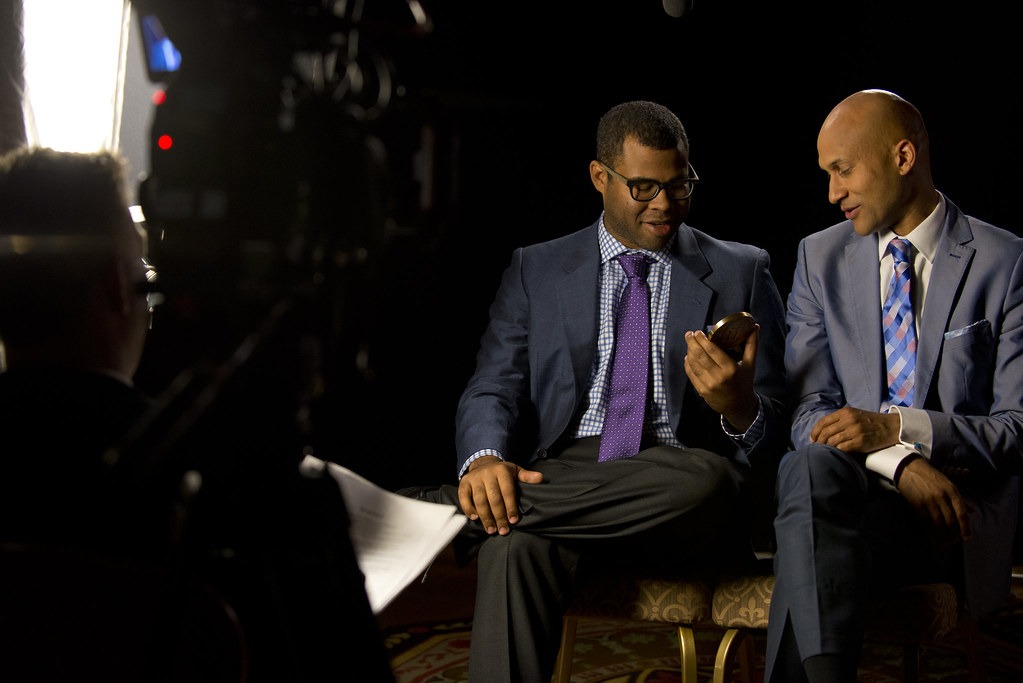
Takeaway: Risks are an opportunity for growth, even if they don’t always succeed.
3. Telling Original Stories: Start with Authenticity
Original projects resonate when they stem from a place of truth.
- Draw from Experience: Incorporate elements of your own life, culture, or worldview into your stories.
- Explore the “Why”: Ask yourself why this story matters to you and how it connects with your audience.
- Avoid Trends: Focus on timeless narratives rather than chasing current fads.
Example: Greta Gerwig’s Lady Bird was deeply personal, based on her experiences growing up in Sacramento. The film’s authenticity made it universally relatable.

Takeaway: The more personal the story, the more it resonates.
4. Developing Your Style: Consistency Meets Creativity
Style is not just about visuals—it’s how you tell a story across all elements of filmmaking.
- Visual Language: Experiment with colors, lighting, and framing to create a distinct aesthetic.
- Narrative Voice: Develop consistent themes or motifs across your projects.
- Sound Design: Use music, sound effects, and silence to evoke specific emotions.
Example: Quentin Tarantino’s use of dialogue, pop culture references, and bold music choices makes his work instantly recognizable.

Takeaway: Your style should be intentional, evolving as you grow but always recognizable as yours.
5. Staying True to Yourself: Building Confidence in Your Vision
The filmmaking process is full of challenges, but staying true to your voice is essential.
- Stay Authentic: Trust your instincts, even if your ideas seem unconventional.
- Adapt Without Compromise: Be open to feedback but maintain your core vision.
- Celebrate Your Growth: View every project, successful or not, as a stepping stone in your creative journey.
Example: Ava DuVernay shifted from public relations to filmmaking, staying true to her voice in films like Selma and 13th, which focus on social justice.

Takeaway: Your voice evolves with every project, so embrace the process.
Conclusion: From Idea to Screen, Your Voice is Your Superpower
Finding your voice as a filmmaker takes time, courage, and commitment. By exploring your influences, taking risks, and staying true to your perspective, you’ll craft stories that not only stand out but also resonate deeply with your audience.
Bolanle Media is excited to announce our partnership with The Newbie Film Academy to offer comprehensive courses designed specifically for aspiring screenwriters. Whether you’re just starting out or looking to enhance your skills, our resources will provide you with the tools and knowledge needed to succeed in the competitive world of screenwriting. Join us today to unlock your creative potential and take your first steps toward crafting compelling stories that resonate with audiences. Let’s turn your ideas into impactful scripts together!

 Advice2 weeks ago
Advice2 weeks agoWhat SXSW 2025 Filmmakers Want Every New Director to Know

 Business5 days ago
Business5 days agoPros and Cons of the Big Beautiful Bill

 Film Industry3 weeks ago
Film Industry3 weeks agoFilming Yourself and Look Cinematic

 News1 week ago
News1 week agoFather Leaps Overboard to Save Daughter on Disney Dream Cruise

 Politics4 weeks ago
Politics4 weeks agoBolanle Newsroom Brief: Israel Strikes Iran’s Nuclear Sites — What It Means for the World

 Health1 week ago
Health1 week agoMcCullough Alleges Government Hid COVID Vaccine Side Effects

 Advice2 weeks ago
Advice2 weeks agoWhy 20% of Us Are Always Late

 Entertainment3 weeks ago
Entertainment3 weeks agoThe Hidden Reality Behind Victoria’s Secret





























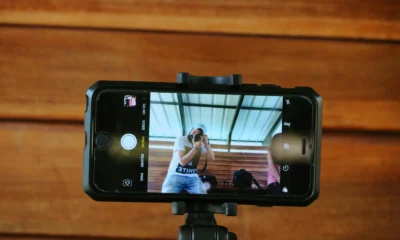











temp mail
March 15, 2024 at 7:51 pm
I do not even know how I ended up here but I thought this post was great I dont know who you are but definitely youre going to a famous blogger if you arent already Cheers.
mnogofakto_vqmn
March 20, 2024 at 5:09 pm
Подробное руководство по настройке многофакторной аутентификации
vpn kz кз впн .
princip_xjSl
April 16, 2024 at 12:01 pm
Технические аспекты
13. Принцип работы API: ключевые особенности
апи запросы https://apiaccess.ru/ .